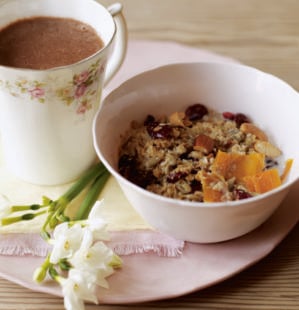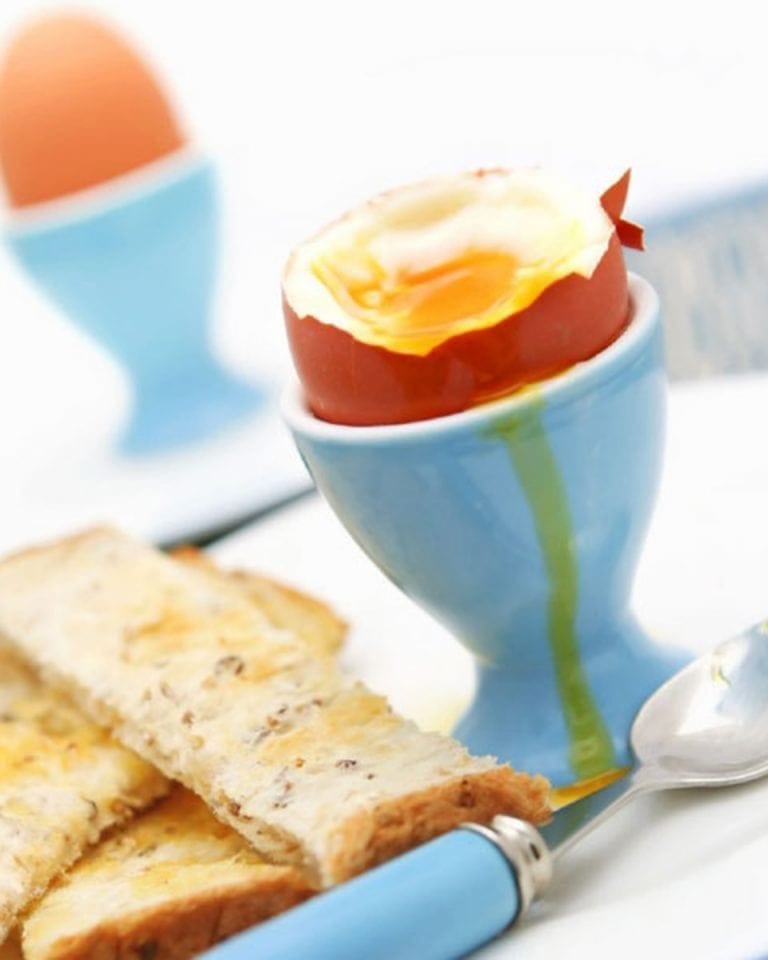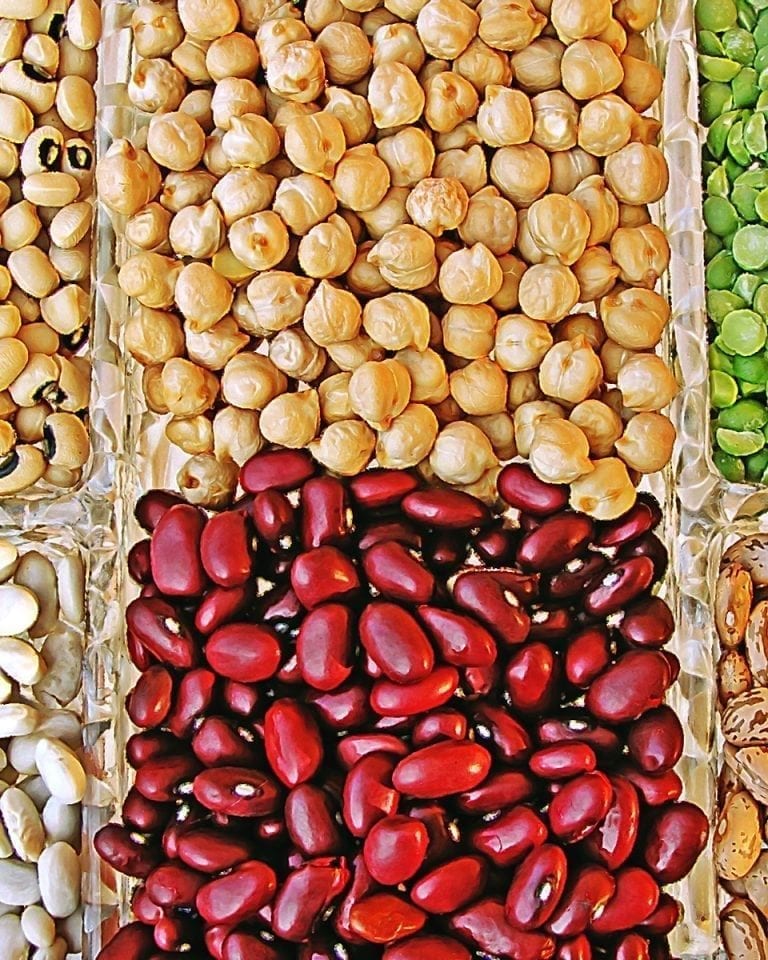Is it unhealthy to eat fortified food?
Scrambled eggs on toast: meal or medication? In a way, this simple plate of food is both. Many foods, including eggs and bread, have added vitamins and minerals.
But is it necessary, and can eating more nutrients than we need harm our health? Sue Quinn investigates…

Most scientists and dietitians agree that fortifying food is an effective way to prevent nutritional deficiencies and related diseases such as rickets (caused by a lack of vitamin D) and osteoporosis (caused by calcium deficiency), especially among vulnerable groups. But others are concerned about the possible toxic effects of consuming too much of certain nutrients.
Why is food fortified?
Sometimes nutrients are added to food to restore what has been lost during processing. For example, under UK law it’s been compulsory for decades for manufacturers to add calcium, iron, thiamine and niacin to white flour because the nutrients are lost during the milling of wheat. But some campaigners for real bread argue this policy is now unnecessary, as diets have improved significantly since the law was introduced.
Manufacturers sometimes voluntarily enrich foods to meet a public health need. Concerns about vitamin D deficiency in the UK prompted them to add this nutrient to breakfast cereals, dairy products and bread. And with many people in the UK failing to eat enough oily fish, omega-3s (essential fats the body can’t make) are now added to some spreads, dairy products and eggs.
Products ae also enhanced simply to give them a competitive edge – for example, vitamins are added to some brands of bottled water and protein powder is added to bread and ice cream.
The benefits of fortification…
Theoretically, we don’t need fortified food – we should be able to get all our nutrients from a balanced healthy diet (except vitamin D, a key source of which is sunlight in the summer months). But large numbers of people don’t eat healthily enough. “According to UK dietary surveys, many people, particularly teenagers, young women and the elderly, are missing out on optimal vitamins, minerals and fatty acids,” says dietitian Dr Carrie Ruxton. “That’s where fortified food can help.”
In fact, many of us now rely on the extra nutrients added to the food we eat. The British Nutrition Foundation estimates fortified breakfast cereals contribute up to 30 per cent of iron and 24 per cent of vitamin D intakes in the UK. For vegans, the only reliable sources of vitamin B12 (other than supplements) are fortified foods such as plant milks and breakfast cereals. Foods enriched with omega-3s are beneficial for vegans, vegetarians and others who also avoid eating fish.
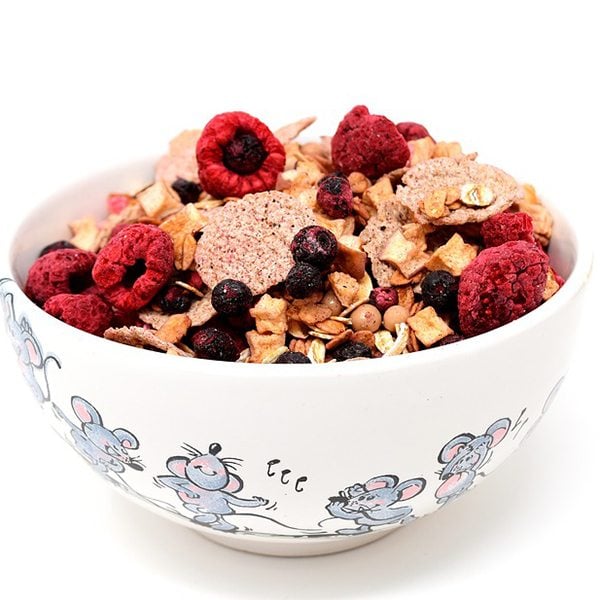
…and the concerns
In Denmark, fortified foods are effectively banned (unless approved by health authorities) in order to protect the public from consuming ‘unsafe’ quantities of nutrients. In 2004, breakfast cereal giant Kellogg’s was prevented from selling a range of its products in Denmark because they contained excessive (by Danish standards) levels of iron, calcium, vitamin B or other supplements.
Scientists outside Denmark have concerns, too. In The Mindspan Diet, Harvard Medical School geneticist Dr Preston Estep makes the case that consuming too much iron through fortified foods or supplements can be dangerous, especially for people aged over 40, and increases the risk of type 2 diabetes, Alzheimer’s and Parkinson’s disease. He’s also concerned that too much protein can put pressure on the kidneys, and may promote cancer and accelerate dementia. Professor Dominic Hare, from the Florey Institute of Neuroscience and Mental Health in Sydney, is also concerned about iron intakes, especially in infancy. He says there’s evidence to suggest consuming too much iron before the age of two, via iron-enriched baby formula and breakfast cereals, might cause iron to accumulate in the brain, increasing the risk of Parkinson’s disease in later life.
Nonetheless, he urges parents not to stop using baby formula, as the links aren’t proven and the dangers of too little iron in infancy are well established. But he adds: “Groups such as the World Health Organization and leading infant nutritionists around the globe have recognised that current guidelines may be excessive, particularly in children who have adequate iron supplies. Research to identify the right balance is underway.”
A complex issue
After years of deliberation by regulatory and advisory bodies in the UK, the Scientific and Advisory Committee on Nutrition (SACN) will report to health ministers this autumn on whether the fortification of flour with folic acid should be compulsory. SACN is considering concerns that folic acid might increase the risk of some types of cancer in some people, as well as the potential benefits of adding this B vitamin to flour. In the US, defects of the brain, spine or spinal cord in new-born babies have dropped by 35 per cent since the fortification of cereal grains with folic acid was made compulsory in 1998.
Sometimes it’s not the added nutrients that are problematic but the fact that manufacturers use them to create a health halo around products that might otherwise be unhealthy. Bahee Van de Bor, a registered paediatric dietitian, urges parents to avoid fortified breakfast cereals that contain a lot of sugar and/or salt. “Wholegrain cereals and toast teamed with fruit, eggs or oily fish are nutritionally superior breakfasts that give children natural sources of vitamins and minerals,” she says. “A sugar-coated fortified cereal cannot and should not replace a nutritious meal.”
The bottom line
It is possible to have too much of a
good thing. Excessive protein can cause problems if you have kidney dysfunction, and most of us get all we need in our diet. Too many fat-soluble vitamins such as A and E can also cause potentially serious health problems. But Dr Ruxton says consumers shouldn’t worry about overdosing on nutrients: “The EU sets safe upper levels for all vitamins and minerals, which manufacturers use to limit fortification levels.” Remember, though, fortified foods aren’t a cure for a poor diet.
Subscribe to our magazine
Food stories, skills and tested recipes, straight to your door... Enjoy 5 issues for just £5 with our special introductory offer.
Subscribe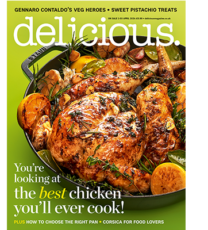
Unleash your inner chef
Looking for inspiration? Receive the latest recipes with our newsletter
